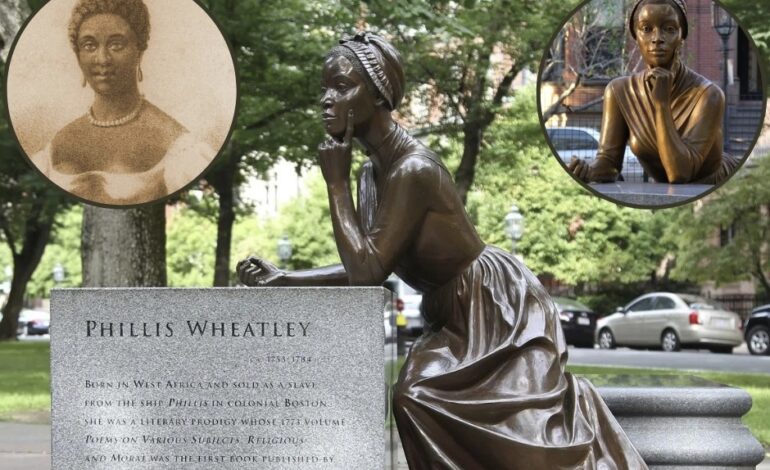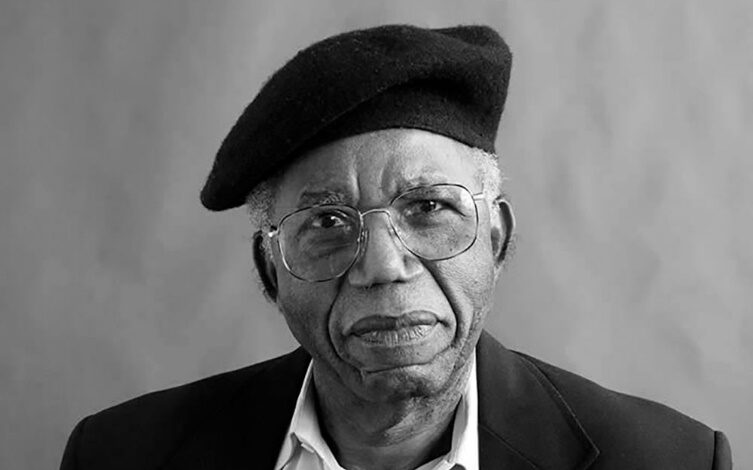
Avellon Williams
AFRICA- Phillis Wheatley, born around 1753 in West Africa, was a remarkable figure in American history. Her story is a testament to both her extraordinary talent and the challenges she faced as an African American woman during a time of slavery.
At the tender age of seven or eight, Phillis Wheatley was kidnapped from her homeland and sold into slavery. She was transported to Boston, Massachusetts, where she was purchased by the Wheatley family. Despite being enslaved, she was given the Wheatley family name, which was uncommon but a sign of the relatively privileged circumstances in which she lived.
Phillis Wheatley’s owners, the Wheatley family, recognized her intelligence and nurtured her abilities. She received an education that was exceptionally rare for enslaved people at that time. Phillis demonstrated an exceptional aptitude for literature and quickly mastered the English language, excelling in reading and writing.
Her talent as a poet was evident from an early age. Phillis Wheatley began composing verses at the age of 13, and her work drew inspiration from the Bible, classical mythology, and the political and social issues of her time. Her poetry showcased her knowledge of various literary forms, such as elegies, odes, and even epic poetry.
Her work drew inspiration from the Bible, classical mythology, and the political and social issues of her time…
In 1770, at the age of 17, Phillis Wheatley gained national attention when she wrote a poem commemorating the death of George Whitefield, a prominent evangelical minister. Her poem was published in various newspapers and gained recognition both in the American colonies and in England. This publication marked the beginning of Wheatley’s literary career and made her the first African American woman to have her work published.
Despite her talent and growing fame, Phillis Wheatley continued to live in a state of enslavement. In 1773, she traveled to London with the Wheatley family’s son, Nathaniel Wheatley, in an effort to improve her health and promote her poetry. During her time in London, she met influential figures such as Benjamin Franklin and the Earl of Dartmouth, who expressed admiration for her work.
Phillis Wheatley’s first book of poetry, “Poems on Various Subjects, Religious and Moral,” was published in London in 1773. This collection of her work solidified her reputation as a talented poet. The book contained a preface attesting to her authorship and dedication to the Countess of Huntingdon, which further challenged prevailing prejudices about race and intelligence.
Upon her return to the American colonies, Phillis Wheatley’s freedom was finally granted by her owners. She married John Peters, a free black man, in 1778.
Unfortunately, her posthumously published second volume of poetry did not achieve the same level of success as her first.
Phillis Wheatley died on December 5, 1784, at the young age of around 31. Despite her short life, she left an enduring legacy as a pioneering African American poet who defied societal expectations and paved the way for future generations of black writers.
Phillis Wheatley’s work not only showcased her remarkable talent and intelligence but also challenged prevailing notions of race and humanity. Her poetry served as a powerful voice for the abolitionist movement, highlighting the inherent humanity and intellectual capabilities of enslaved Africans.
Today, Phillis Wheatley is celebrated as one of the first African American literary figures in the United States. Her work continues to be studied and appreciated, reminding us of the resilience, creativity, and intellectual prowess that can emerge even in the face of unimaginable adversity.
RELATED:




